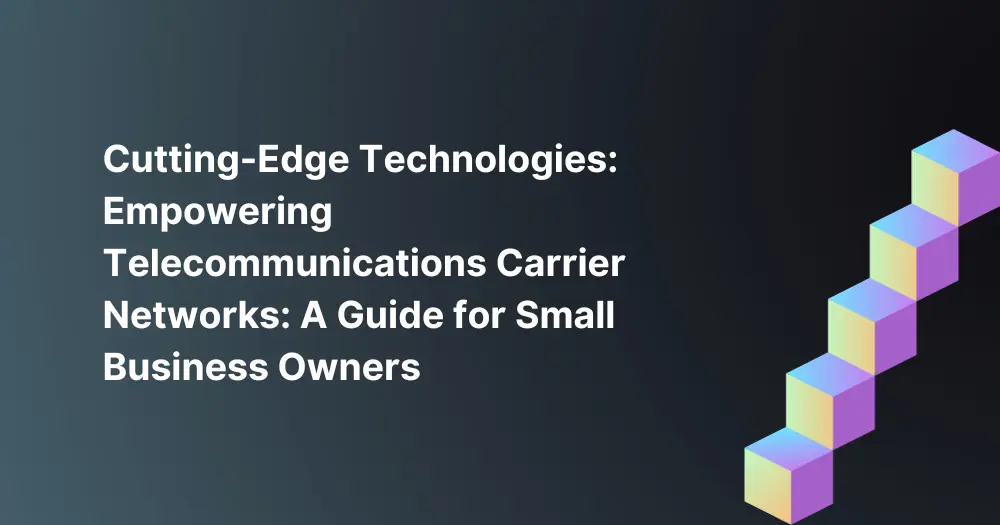
Telecommunications carrier networks are critical to facilitating seamless communication and data exchange. The interconnected systems are pivotal in fostering worldwide communication, facilitating businesses smooth functioning, and enhancing customer satisfaction. As an entrepreneur, staying well-informed about cutting-edge carrier network technologies empowers you to manage your telecommunications infrastructure strategically, leveraging the myriad advantages these innovations bring forth.
This guide will provide a detailed exploration of the latest technologies transforming telecommunications carrier networks. We will explore 5G, LTE, SDN, NFV, and IoT and understand how these innovations contribute to improved network performance, heightened security, and enhanced operational efficiency.
The emergence of the fifth generation (5G), a revolutionary advancement in wireless communication, heralds an extraordinary shift for carrier networks. This state-of-the-art technology holds the potential to deliver significantly enhanced data speeds, minimized latency, and increased capacity, marking the beginning of a transformative phase in data transmission and consumption. Small businesses stand to gain several advantages from 5G:
Long-Term Evolution (LTE) is the fourth generation of wireless technology widely deployed across carrier networks. While 5G may be the future, LTE remains essential for network operations. The benefits of LTE include:
SDN is a cutting-edge networking approach that separates the network’s control plane from the data plane. This decoupling allows for more agile and efficient network management. Small businesses can benefit from SDN in the following ways:
NFV is a technology that virtualizes network functions, such as firewalls, routers, and load balancers, allowing them to run on standard servers instead of dedicated hardware. Small businesses can reap the following benefits from NFV:
The Internet of Things is a network of interconnected devices that collect and exchange data, offering unprecedented insights into various processes. For small businesses, IoT offers numerous advantages:
Edge computing is another cutting-edge technology that complements 5G and the IoT. This process involves handling data closer to its origin, which helps decrease latency and minimize the bandwidth used. Small businesses can leverage edge computing in the following ways:
Telecommunications carrier networks have evolved significantly, leveraging cutting-edge technologies like 5G, LTE, SDN, NFV, IoT, and edge computing. Small businesses can significantly benefit from these advancements by improving connectivity, enhancing security, and optimizing operations. Embracing these technologies improves competitiveness, fosters growth, and increases customer satisfaction.
As a small business owner, staying informed about these trends is crucial for making informed decisions about your telecommunications infrastructure. Embrace the power of cutting-edge carrier network technologies and unlock your business’s true potential in today’s digital world. With 5G’s faster speeds, LTE’s reliability, SDN’s flexibility, NFV’s agility, IoT’s transformational capabilities, and edge computing’s real-time processing, your business can thrive in the ever-evolving landscape of modern telecommunications. Invest wisely and ride the wave of innovation for a brighter future.
At BlackPoint IT, we deliver reliable and advanced technology solutions for businesses. Our dedicated team ensures seamless operations and enhanced security with comprehensive cybersecurity, streamlined network management, and strategic cloud services. Partner with us to optimize your IT infrastructure and achieve your business objectives. Contact us today for professional and effective technology solutions tailored to your needs. Your success is our priority.